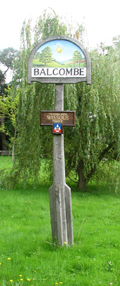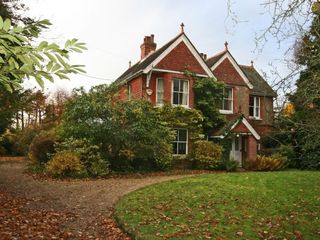| |
Later
Career
 From
the late 1940s to the 1970s, Scofield was widely considered
to be heir apparent to Laurence Olivier for title of
greatest actor of the 20th century. In the 1970s, however,
his lack of ambition and his penchant to stop and literally "smell
the roses" (he was a keen gardener) caused him
to be rated as a great "might-have-been." Scofield
was way ahead of the curve in figuring out the work-life
balance. In 1943, Scofield married the actress Joy
Parker, and, in 1951, the couple settled down to raise
their son, Martin, and daughter, Sarah, in the village
of Balcombe,
West Sussex. There, Scofield became an actor/commuter.
He loved family life and tried to confine his acting
to
the
50-mile
radius
that
comprised
the
commute from his home in rural West Sussex to London.
Perhaps for this reason he became increasingly involved
with radio drama and audio books. This enabled him
to work and enjoy From
the late 1940s to the 1970s, Scofield was widely considered
to be heir apparent to Laurence Olivier for title of
greatest actor of the 20th century. In the 1970s, however,
his lack of ambition and his penchant to stop and literally "smell
the roses" (he was a keen gardener) caused him
to be rated as a great "might-have-been." Scofield
was way ahead of the curve in figuring out the work-life
balance. In 1943, Scofield married the actress Joy
Parker, and, in 1951, the couple settled down to raise
their son, Martin, and daughter, Sarah, in the village
of Balcombe,
West Sussex. There, Scofield became an actor/commuter.
He loved family life and tried to confine his acting
to
the
50-mile
radius
that
comprised
the
commute from his home in rural West Sussex to London.
Perhaps for this reason he became increasingly involved
with radio drama and audio books. This enabled him
to work and enjoy  family
life to the full, but took him off the radar of most
theatre and film goers. Scofield's
commitment to being a freelancer rather than locking
into a studio contract also limited his film appearances. family
life to the full, but took him off the radar of most
theatre and film goers. Scofield's
commitment to being a freelancer rather than locking
into a studio contract also limited his film appearances.
In
an era when stars were "branded" and marketed
to the public, Scofield not only exceeded expectations
but confounded them. He defied any attempts at "branding" and
typecasting by constantly stretching his range. His
noble, sensitive Hamlet was counterbalanced by human
wreck of the whisky priest in The Power
and the Glory and Johnny, the slimy,
reptilian talent agent in Expresso Bongo.
After playing the incorruptible Sir Thomas More, he
played the all-too human, fading homosexual hairdresser
in Staircase. This versatility
frustrated many who felt Scofield should focus on being
a great classical actor and who dismissed his performances
in productions such as Expresso Bongo and I'm
Not Rappaport as "slumming."
During
the 1970s, theatrical style underwent a sea-change.
The powerful trend toward spontaneity and authenticity
that Scofield's acting had helped inspire in the 1950s
culminated in a movement to free the actor from the
tyranny of the writer. The well-made play, which had
been the holy grail for a previous generation, became
suspect. Actors were encouraged empower themselves
to create the performance through improvisation. Scofield,
however, had little interest in improvisation. He saw
his role as that of an "instrument" that
gave voice to the writer.22 With
the rise of method acting and actors mumbling their
parts in regional accents, Scofield's vocal quality
and electrifying stage presence made him seem out of
pace with the rest of the theatre world. Acting had
suddenly grown smaller and "sometimes it appeared
as if he could not find his place as a player as the
years progressed."23 By
1989, The Observer concluded
that Scofield was "the last out-and-out heroic actor
working in the British Theatre." 24
Appearances
though are often deceiving. While critics lamented
Scofield's infrequent appearances in theatre, film
and television, they overlooked his growing involvement
with that most exacting and underappreciated medium—radio.
Scofield acted in many of the greatest radio plays
and spoken-word productions ever broadcast such as King
Lear (2002), Amadeus (1983), Henry
IV, Part 1 (1961), Hamlet (1963),
and Othello (1972). After
his final theatre and film appearances, Scofield continued
to do radio performances until shortly before his death
on March 19, 2008.
The
primary purpose of this website is to spotlight these
lesser
known but no less worthy performances. |
| |
Home
References
22) Ronald
Hayman, "Paul
Scofield and the Writer's Voice," The
Times (London), Thursday, 11 February
1971, p. 11. (top)
23) http://www.telegraph.co.uk/news/obituaries/1582227/Paul-Scofield.html (top)
24) O'Connor,
p.p. 107-108. (top) |